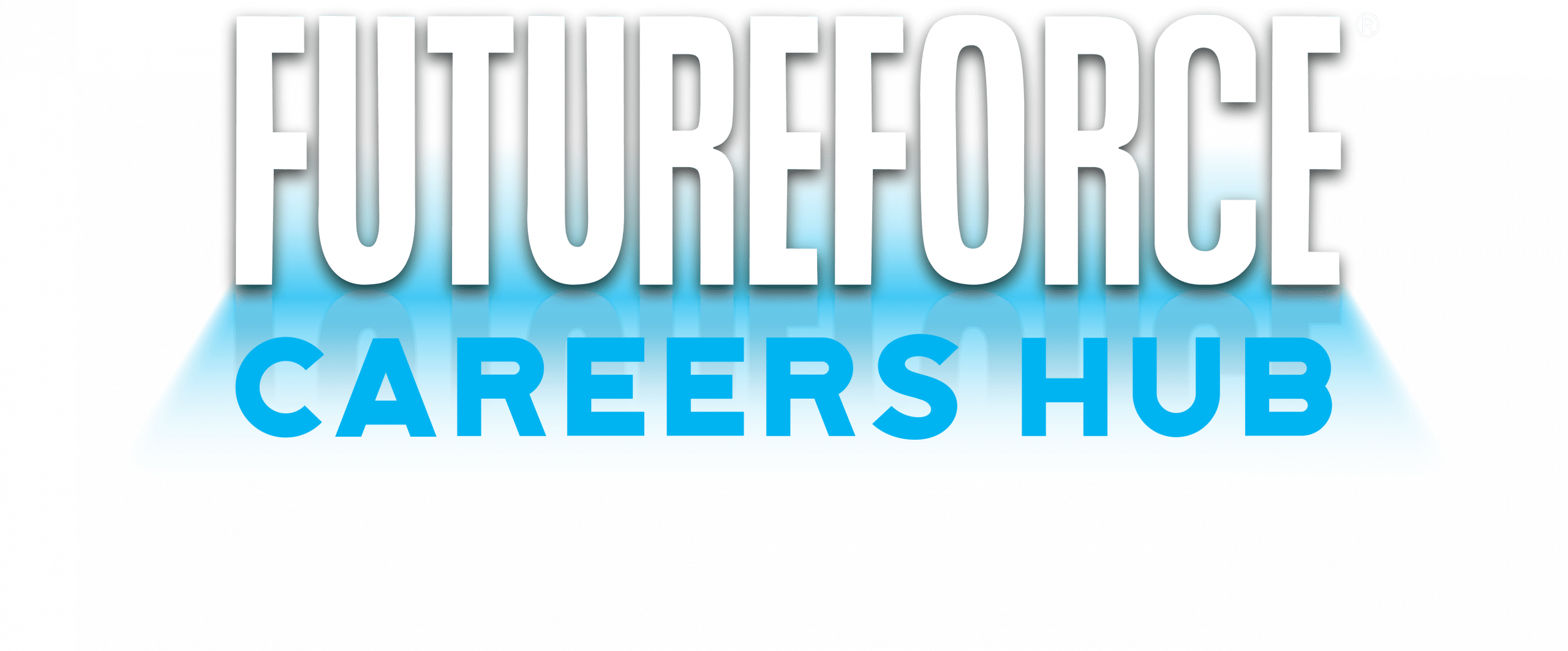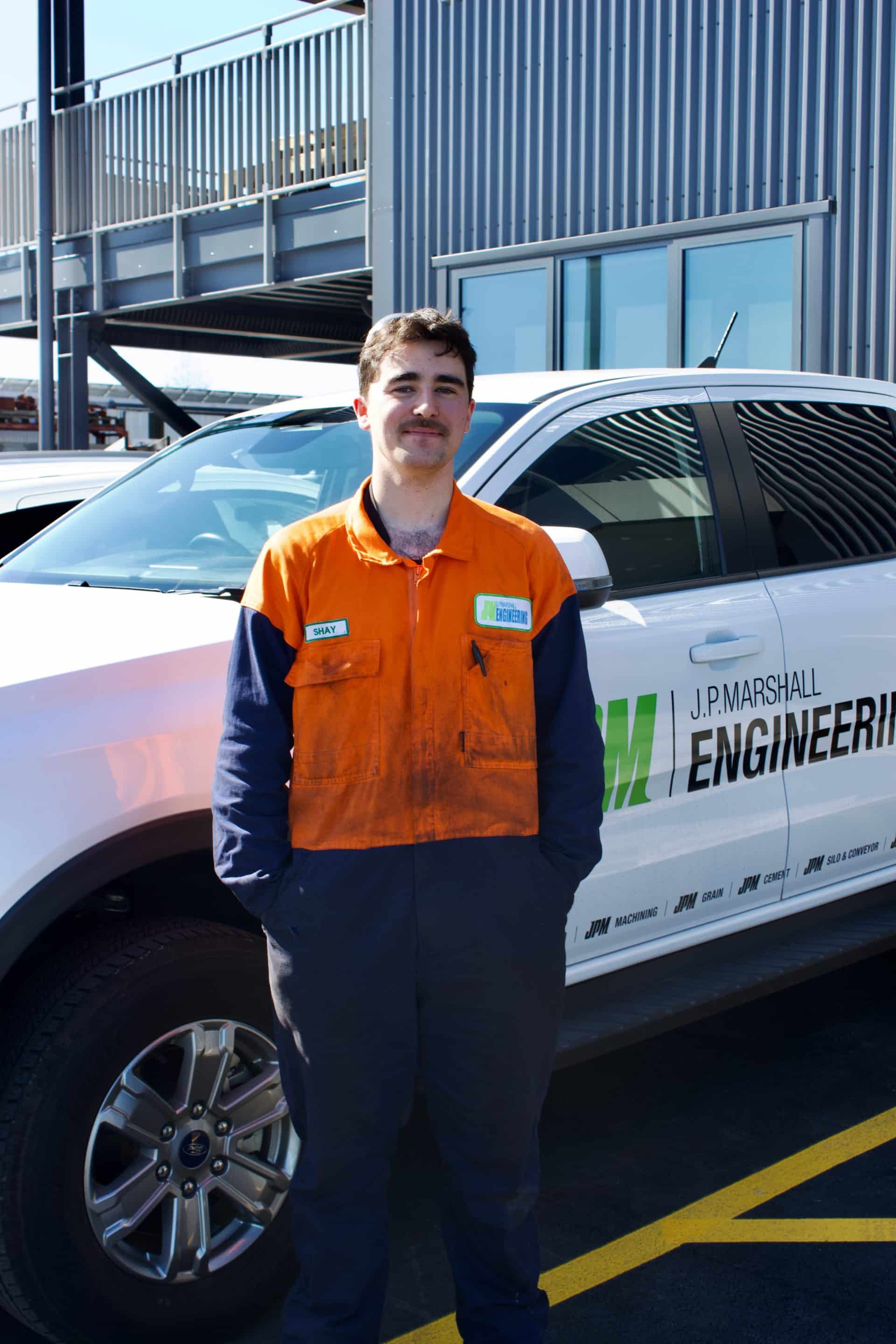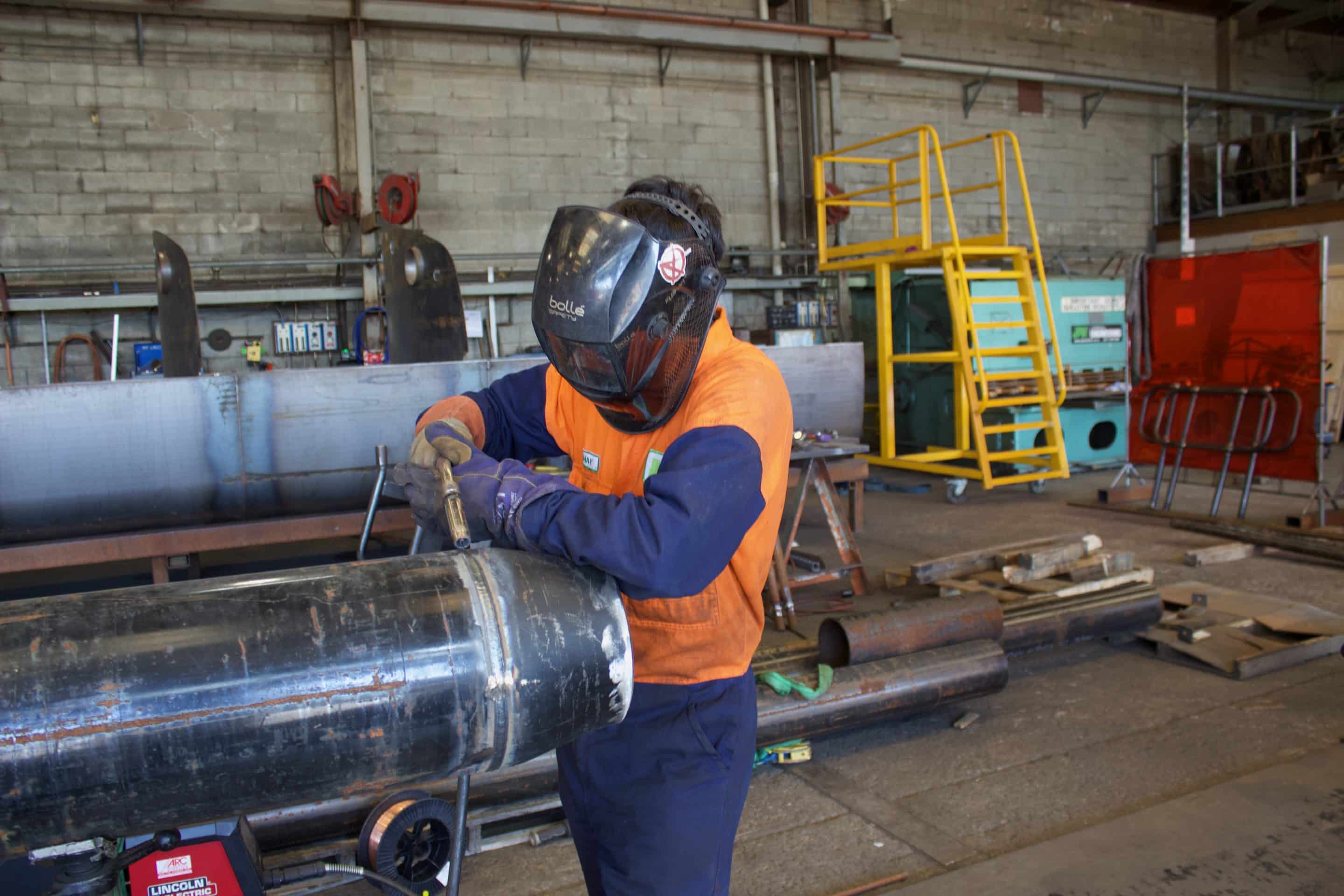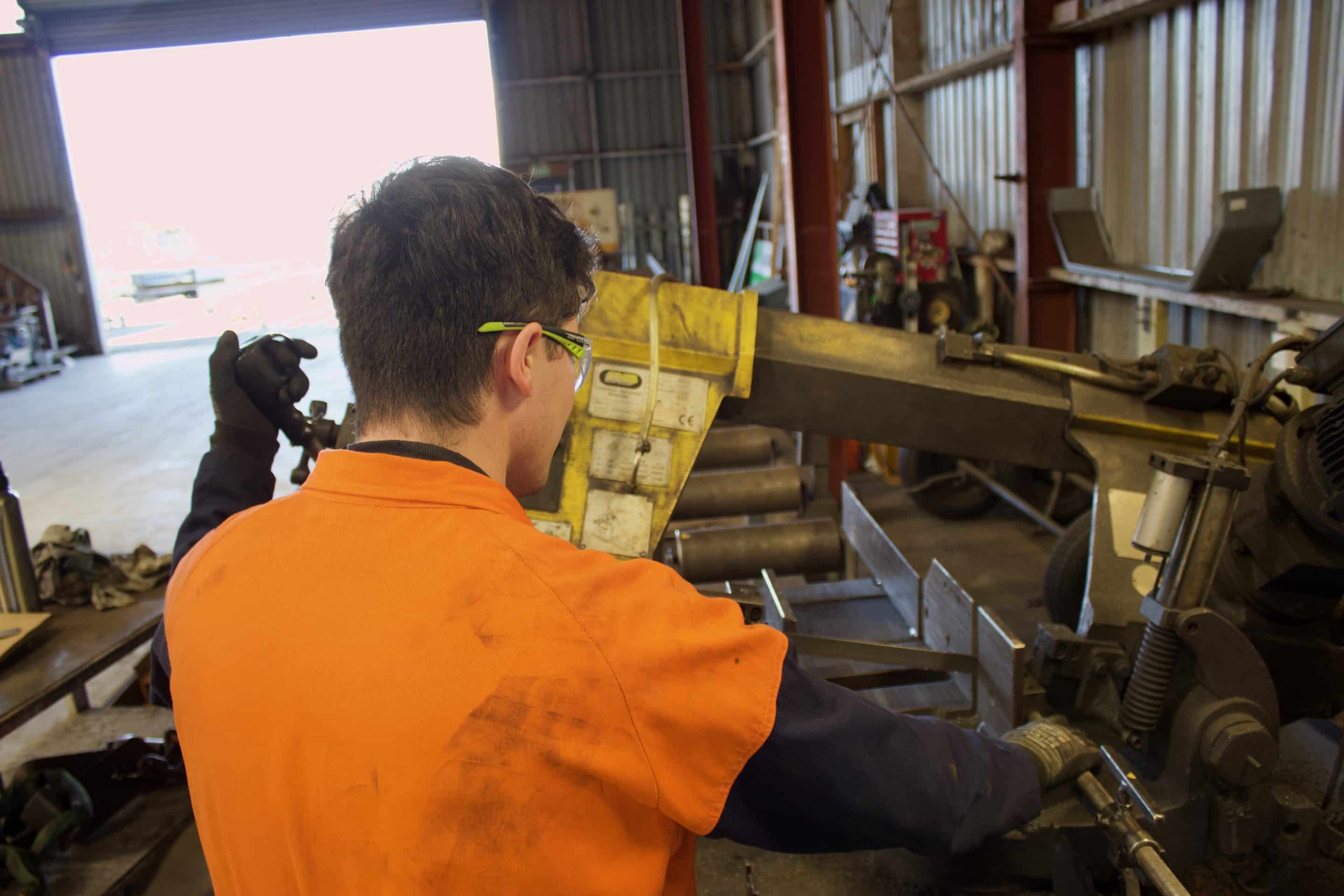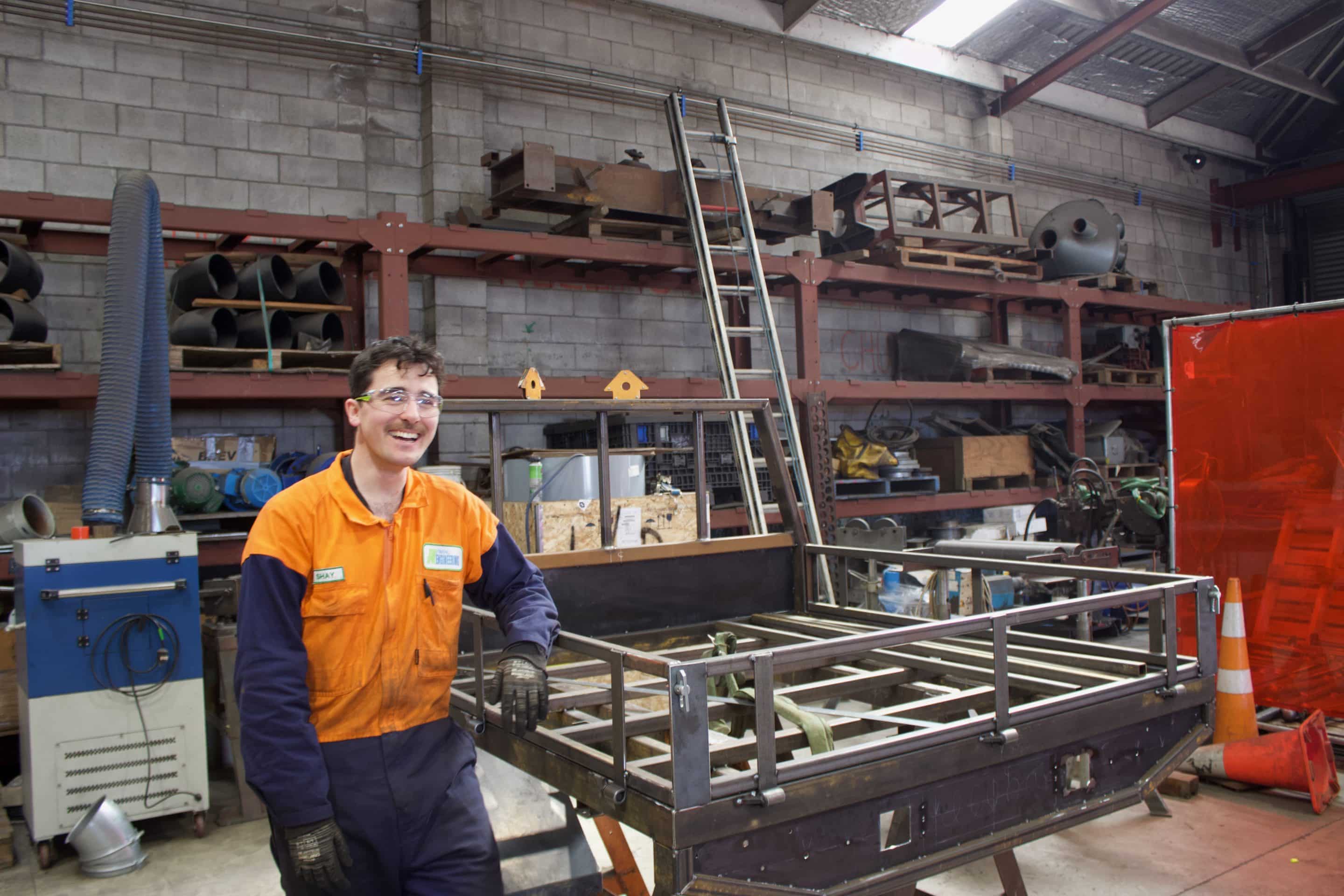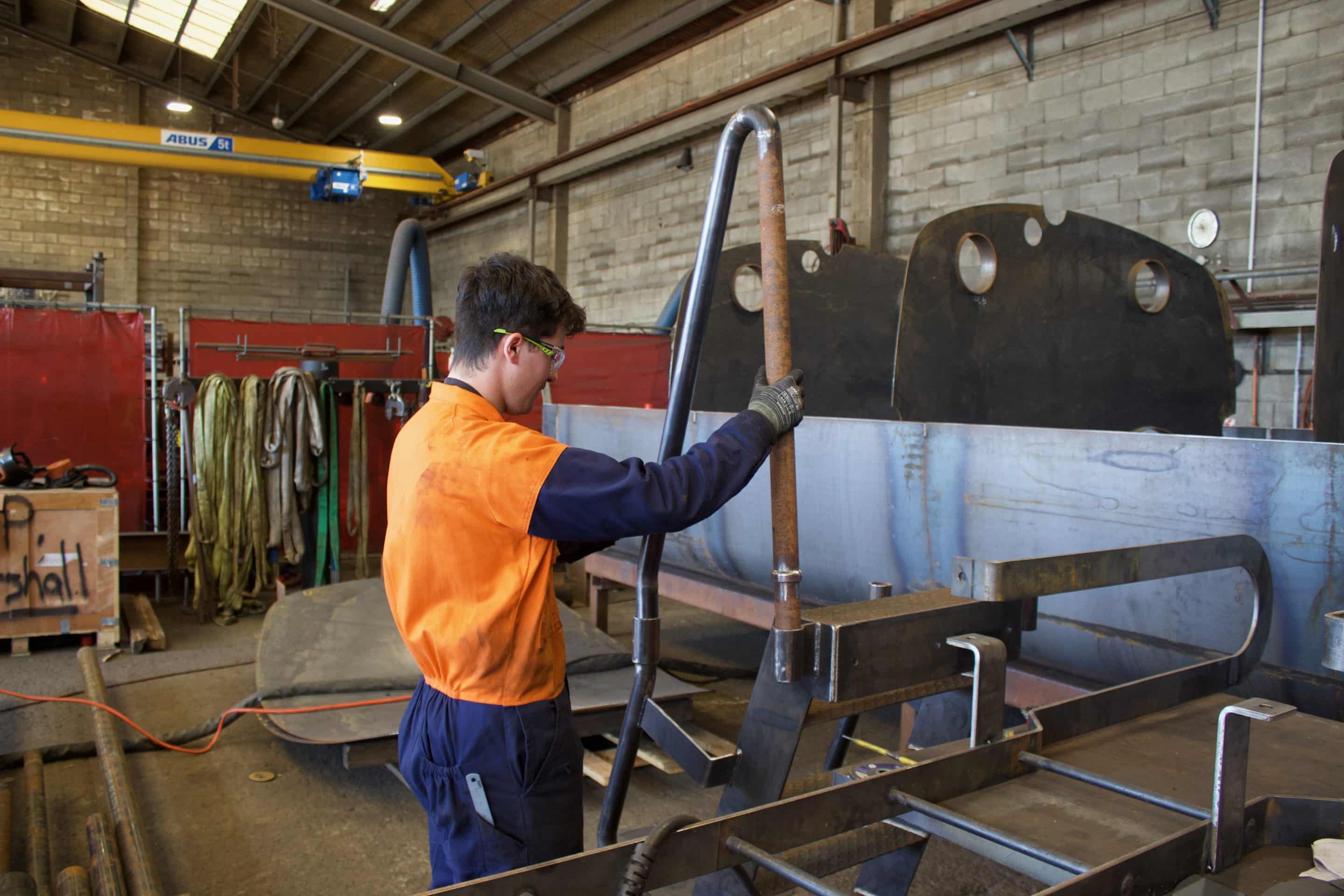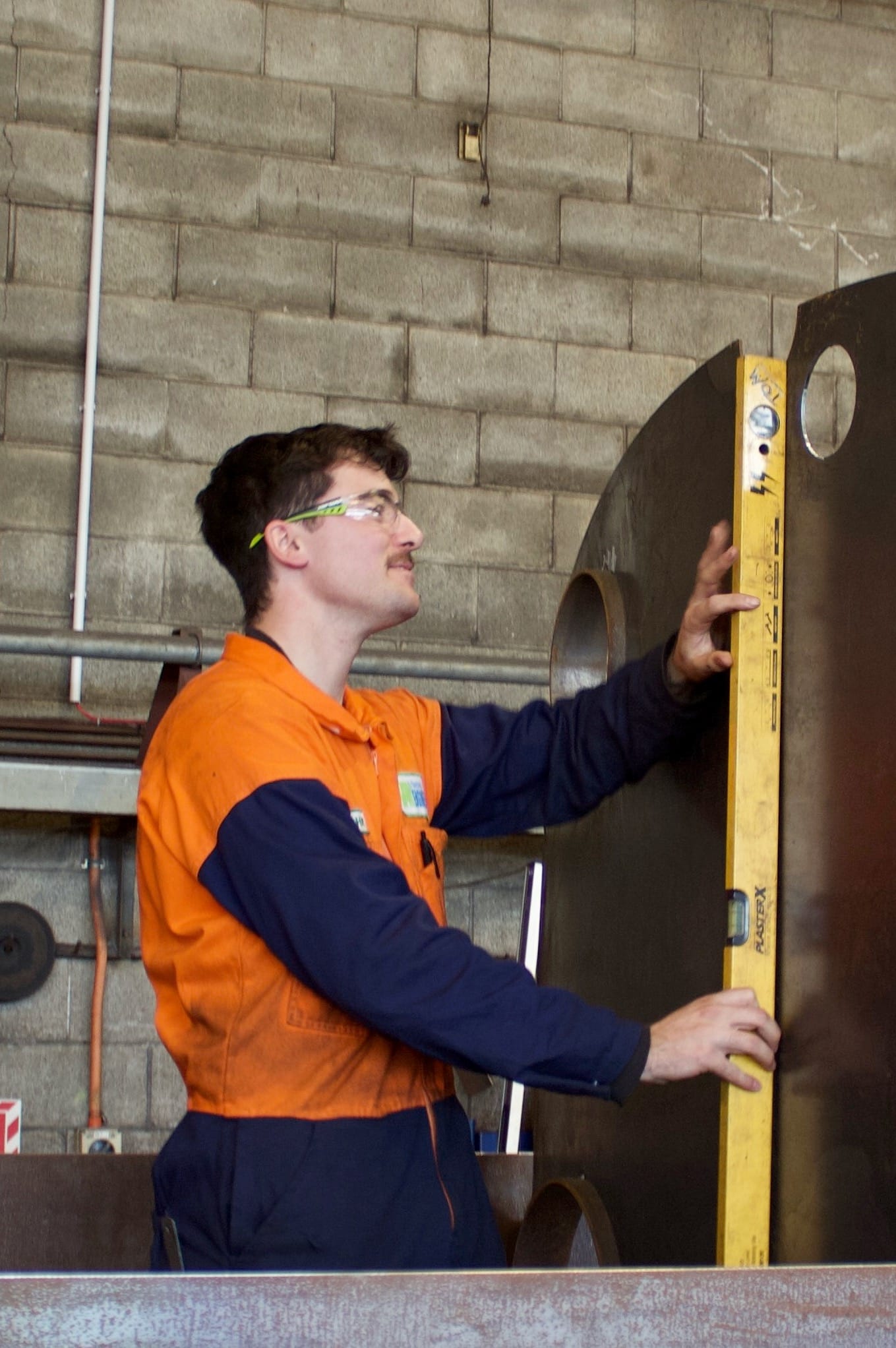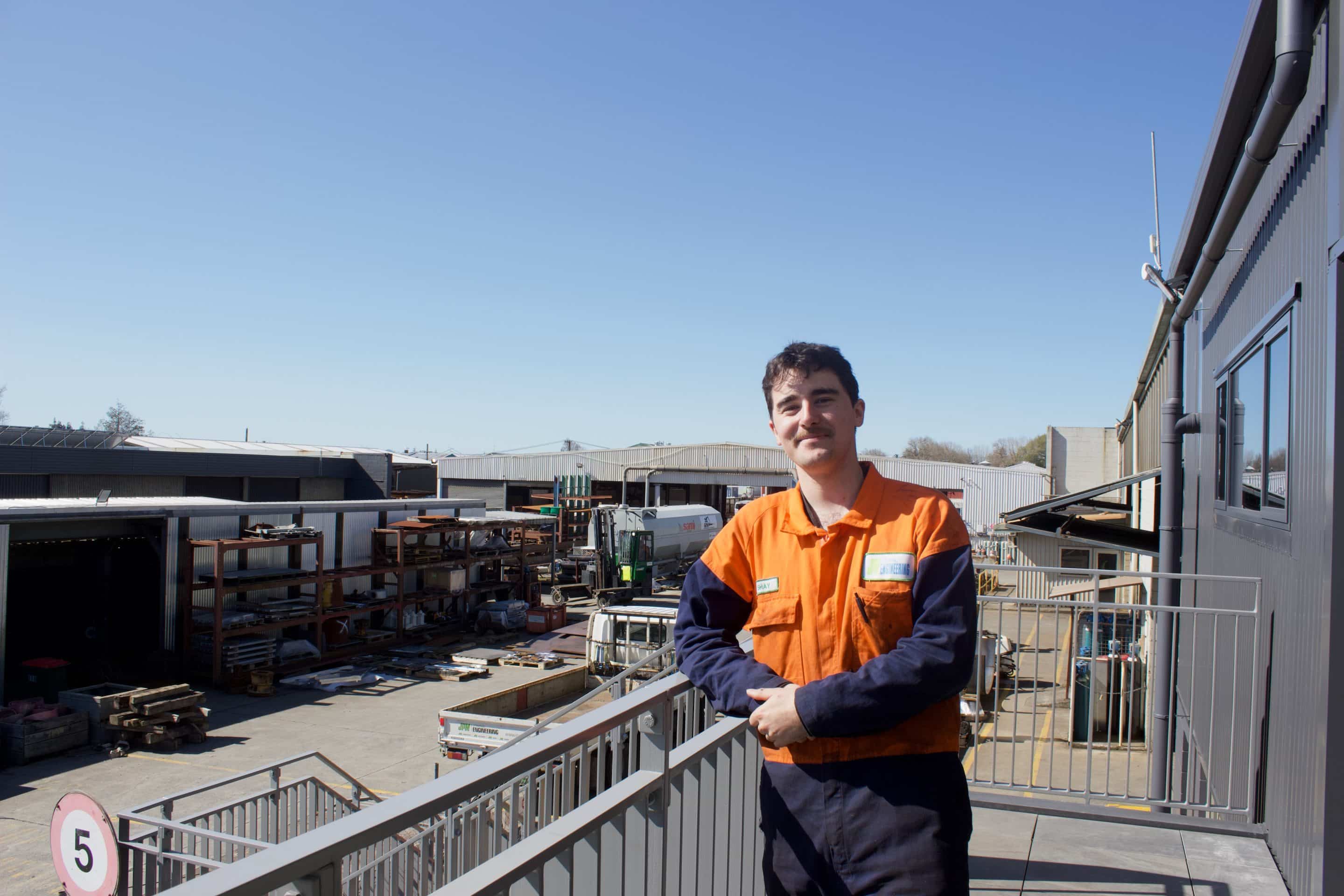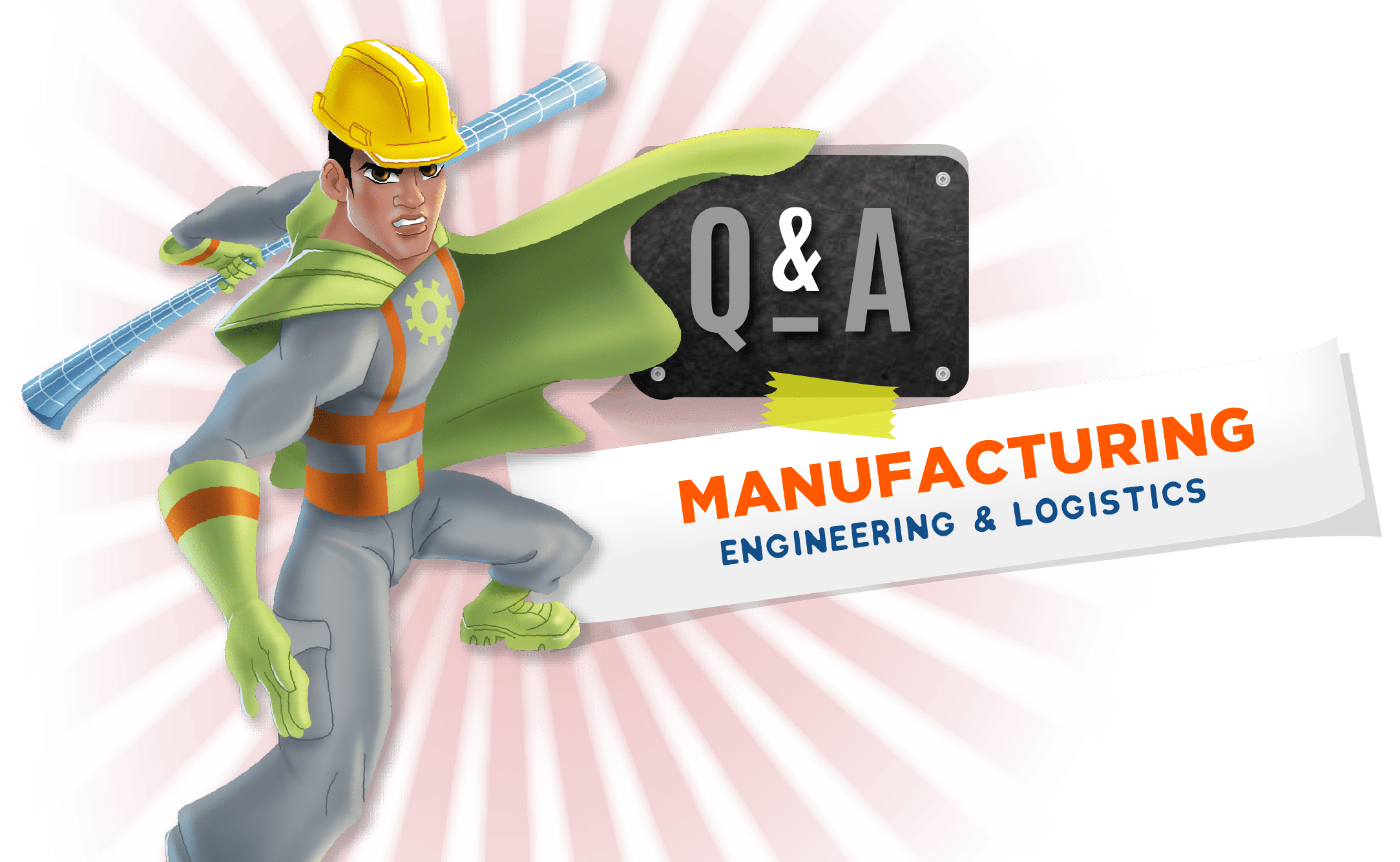
Fabricating great careers with JP Marshall Engineering
From working on his car to welding large-scale structures, Shay’s weekend hobby inspired his career in Engineering.
“I started working on cars, so being able to weld and fabricate was a very good skill to have. There is a huge variety of stuff to do here at JP Marshall, so it always keeps the job entertaining.”
The FutureForce® Team caught up with Shay, a Level 4 Heavy Fabrication Apprentice, to hear all about his job, including his love for all things welding, getting used to early starts and how to make good career decisions! Check out what he has to say…

Shay Cornes
Heavy Fabricator Apprentice – Level 4
Shay’s Top Career Tip
“Asking a lot of questions is important, especially when you first start. It is always better to ask a question then to have to go back and fix a mistake!”
A Chat with Shay about his role
Shay Cornes
Former Raglan Area School student

What is a heavy fabrication apprentice?
So, you have light fabricators, and they make things out of 2-3mm materials, whereas we heavy fabricators make larger stuff out of 10mm materials, usually from steel. These are often structural things, like silos, tanks or pressure vessels. To do this, we take the materials and get them laser cut to shape, then assemble and weld it all together.
What got you interested in this career?
I started working on cars, so being able to weld and fabricate on my car was a very good skill to have. I had a family friend who helped me learn about this job and made sure I was interested in it. There is a huge variety of stuff to do here at JP Marshall, so it always keeps the job entertaining.
What makes a good heavy fabrication apprentice?
If you are hands on and like to think about what you are doing, enjoy planning things and just getting stuck into it. You must be able to show up on time and be eager to learn – don’t be shy! Asking a lot of questions is important, it is better to ask a question then to have to go back and fix a mistake.
What have you learnt on the job?
A lot of hands-on things, what tools you use, how things work mechanically and procedures in the workplace. It’s cool to see how things are made that you would have never thought of.
What do you like most about working at JP Marshall?
There is a huge amount of variety. Coming into an apprenticeship, I expected to be doing the same thing day in day out, but at JP Marshall you get to learn a range of skills, and complete varied tasks. I have been able to do site work, structural work and mechanical work.
Where would you like to go with your career?
From the variety of work, I have learnt how to do while working here I could go into one of the many areas of welding. Once you have the qualification there is potential to take it anywhere. Welding tickets verify that you can carry out the various tasks, so shows employers your abilities.
Tips & Advice
Can you tell us a bit about what an apprenticeship is?
An apprenticeship is all about learning the trade and learning how to do so safely. Everybody around you is teaching and helping you learn while being on the job. It’s good working here because everyone will teach you no matter what you’re doing so you can ask anyone if you’re confused.
What are some useful/recommended school subjects?
My school didn’t offer any subjects to do with welding or fabricating. However maths is a big one, you need to know A2+ B2, as there are questions about this in our exams. I never thought I would use this outside of school, but maths has been important for my apprenticeship… and I wish I had listened more!
What else do you wish you knew before leaving school?
Working takes up a lot of your time so it’s important to make the best use of your free time when you have it. Take time to know what you want to do so you can enjoy it. Don’t rush into things too fast with your career as you may end up starting something and then changing your mind. It can be good to find someone in the industry and talk to them about it. If possible, get a bit of work experience to get a taste for it.
What are the challenges you have had?
Probably the long hours and early starts have been the hardest for me to adjust to. My advice would be to take it in your stride, and you will adjust to these wake ups quickly. I also think it is good to find some hobbies. For me this is working on my car. Having a hobby is good to unwind outside of work.
Shay told us all about some of the different types of welding…
There’s more to it than you might think!
Mig welding – Involves a wired feed gun, where the wire shoots out and turns into molten metal. This style of welding is normally used for thicker materials.
Tig welding – This involves a gun that doesn’t feed, you feed the other metal rod by hand. This is useful as you can control how much you feed in, that changes the size of the weld. This type of welding is often used on thinner materials.
Stick welding – This involves an electrode, with a flux coating around it, that creates an arc between the rod and the material you are working on. This shields the weld and helps to make a good weld.
Positional welding – there are different positions you can weld. Flat welding, overhead, horizontal and vertical. You get different tickets for the different directions (horizontal, vertical, flat, overhead) and this shows that you are able to weld in these different positions.
What makes a good weld?
“Uniformity is the key to a good weld. You don’t want to be welding all over the place and creating a messy looking weld. When you are new, the hardest part is getting your settings right while you are welding. Using mig welding you adjust the setting for the volts and then the wire feed, getting this right in the beginning is hard.”
Did you know?
You can get pressure vessel tickets while completing your apprenticeship, to show your ability to weld up to a specific standard.
These tickets are hard to get as you have to make sure your weld is good enough to hold pressure in a tank.
About JP Marshall Engineering
JP Marshall Engineering in Hamilton has been a great place to work for over 60 years. The company is one of New Zealand’s largest and most experienced steel fabricators and commercial and industrial engineering providers.
JPM offers services including:
- Design
- Laser cutting
- CNC pressing
- CNC machining
- Welding
- Project management
- Installation
- Site services
So, a great variety of work for bright young people keen to kick start their engineering careers!
Learn more about JP Marshall
